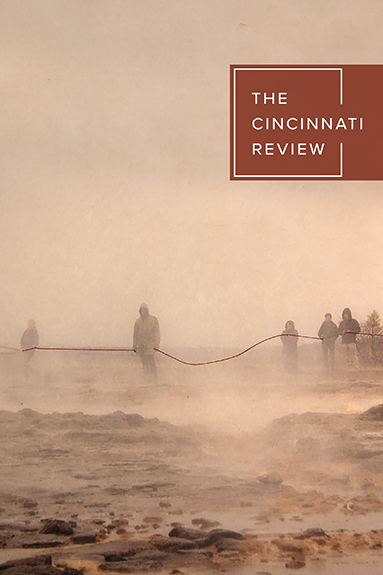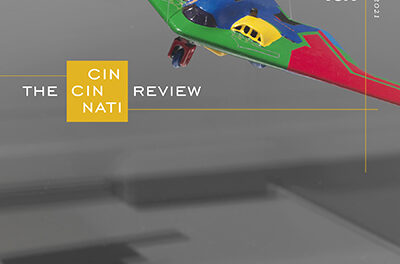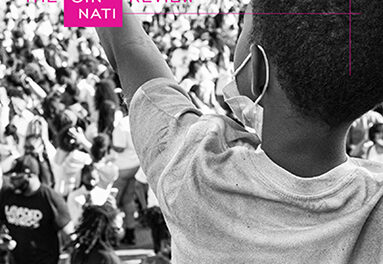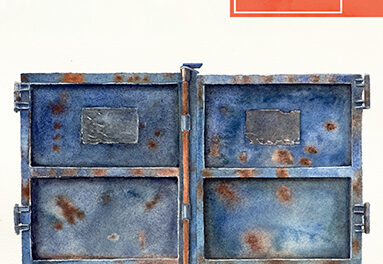Last summer everyone I knew was trying to give me advice, but something made me certain that anything worth listening to was going to come from Carl. Carl was my boss at the Maple Grotto, a retirement community with on-site hospice care. Every morning he would gather the grounds crew and maintenance guys in his office and tell us the jobs for the day. Every afternoon after I clocked out, he would give me a beer.
I would take the beer up to a spot between two trees where I had set up a folding chair overlooking the Grotto’s little par 3 golf course, and I would watch the old men try to golf like they used to. None of them could, and none of them had a sense of humor about it.
From my spot I could also admire our work. The grounds of the Maple Grotto were always pristine, and we all agreed that there was something about Carl that made us take extra pride in our job. I don’t think I can respect anyone who doesn’t derive a certain satisfaction from yard work. Few endeavors can show you what you’re accomplishing in real time, the material impact you can have on the world, in this case with nothing more than a few hours and the willingness to walk in straight lines.
The men I worked with would tell stories about Carl when he wasn’t around. Gabriel, whose English was in some ways better than mine, would translate them for me: that Carl could drink twenty beers, no problem, that Carl had been an all-state strong safety in a time when football was more dangerous, that Carl had a machine in his truck that would pull a beer out of a box behind the driver’s seat and place it right into his hand.
I appreciated what Gabriel was trying to do, including me in the conversation during lunch breaks or pauses in work, so I never had the heart to tell him that I loved the stories best when they were told in Spanish and the name Carl would surface like a legend’s name out of the cryptic flow of the long romantic sentences. We didn’t all speak the same language, but we understood each other, and none of us presumed to tell another how to grieve or when to move on.
Anyway, I hated golf then, and I still do, but I would sit in my chair for hours sometimes, long after I finished my beer. It was easier to sit with my empty can and listen to the bugs and feel the sun start setting and watch the old men golf than it was to go home.
One day Carl singled me out for an errand. He told me in the morning to trim hedges until ten, then meet him at his truck.
“Louis says to check for the beer machine,” Gabriel translated for me when I handed him my shears to leave.
I nodded to Louis. The beer machine was serious business. On my way to Carl’s truck I admired the bushes we had worked on, and when I met him there, he had the same look of satisfaction that I imagined I had.
“All right, now,” Carl said at the truck. This phrase, like aloha or shalom, was greeting and farewell, peace and satisfaction.
It was an old Ford, white, cloth seats. Carl was a smoker, and the truck smelled like it, but he didn’t smoke when he drove me. A beer smell was in the mix as well, but I never saw anything that could be called the legendary machine. In fact, the logistics of it seemed impossible. His truck didn’t even have a back seat, and I don’t know where a lever would have gone.
Those smells stirred my memory then, as they still do whenever I encounter them. Carl rolled the windows down for the drive, and the wind seemed to whip the smells around.
I remember that the full version of the song “Layla” came on the radio, but Carl had to turn it off in the middle of the piano outro when we parked next to the local university’s theater.
“What instrument did you say you played again?” Carl asked.
I had forgotten that I’d told him anything about that. “Sax,” I said. “Not for a few years now.”
“Good instrument,” he said. “Not in ‘Layla,’ though. Makes you think.”
The errand, he told me, was to pick up a sarcophagus for a group at the Grotto staging a play at the end of the summer.
They were always doing things like that, putting on plays or starting literary journals or investment clubs. You wouldn’t believe the vanity, the fornication, the backstabbing at a place like the Grotto. On my first day an old man stumbled half-naked out into a common room and asked a sweet woman doing watercolors of starfish if she would help him waste his substance on riotous living. Within my first few weeks there I witnessed a coup: the activities-committee president being ousted by her longtime rival in one remorseless swoop. I saw a seventy-seven-year-old woman melt down when a seventy-four-year-old moved in and she wasn’t the youngest anymore. I would arrive for work on mornings after key parties and see octogenarian walks of shame, ladies in thick bathrobes and men wearing long pajamas and adolescent smiles.
“It’s set in ancient Egypt?” I asked in the truck.
“I doubt it,” said Carl.
Carl knocked on a big backstage door, and a girl answered. She had mostly dark hair, short, maybe a couple different colors in the mix—and a stage voice. You know what I’m talking about: a big, bold voice made strong by practice and projection.
“So, you’re the grave robbers,” she said.
“Egyptologists,” Carl said. “Evaluating ancient curses.”
The girl laughed, or acted like she was laughing. She directed us by a twitch of her head through a door, where the sarcophagus was strapped to a hand truck. It wasn’t the real thing, but it would look fine from far away or, it occurred to me, to an audience who couldn’t see well.
“I’ve read this play you’re putting on,” she said.
“That makes one of us,” said Carl. He leaned the hand truck back and started maneuvering it to the door.
The sarcophagus was, after all, a prop. Up close, the paint was chipped, the wood didn’t fit completely flush together. But it did make me think about cultural reverence for the dead, the theatricality of burial.
“I can tell it’s going to go well,” said the girl. “You both have good auras.”
“I’m always saying that,” said Carl.
Once we had it loaded, it did not take us long to be stuck in traffic. That Who song about the boy who is blind but still good at pinball came on the radio. Carl loved it. I remember that he said a few good songs were all we had to justify the passage of time.
“We grow old,” he said. “We die. A good song can make all that worth it.”
I love Carl, but I remember thinking that was an easy thing for a living man to say.
I had barely gotten the sarcophagus off the hand truck in the Grotto’s auditorium when Gabriel found me and told me about Bumgartner. He had been a teacher, but he was okay to be around. Louis had found him in his apartment, and no family was coming to collect anything. We went in after the van took the body away. This happened sometimes.
When alive, Bumgartner had lived in one of the smaller apartments and kept it tidy. There weren’t many belongings either. We started in the kitchen, throwing out the food in the fridge and wiping it down inside.
“It’s strange,” Gabriel said.
“What is?”
“No pictures.”
The refrigerator door was totally blank. It was dappled, sort of like a golf ball, but was otherwise an uninterrupted monolith of off-white. The freezer was empty, without even an ice tray.
He did have several appliances for the making of high-quality, complicated coffee, and we carried these to Carl’s truck. For people like Bumgartner, the Grotto would donate belongings to the Salvation Army.
The only items of any distinction in the late man’s apartment besides his French presses and bean grinders were his liquor cart and his books. The man had barely any personal furniture (this was good for Gabriel and me), save a recliner next to the tall bookshelf.
I still cannot say what drew me to the pair of reading glasses on the arm of the recliner, but I felt then like I had no choice but to pick them up. I wonder still if it had something to do with Carl, how dignified he looked when he put on his glasses in the morning to look down at his list and divvy up tasks of the day.
There was a book on the recliner too: open, spine up. The scene was as if he’d just set it down to get up and do something, and died before he could return. I remember looking at that book for a long time before picking it up. It was a collection of Welsh mythology.
Gabriel pulled two paintings off the wall. One was a landscape, and he told me the other was a print of a famous painting by Caravaggio: Abraham about to kill Isaac, hovering over him with a blade.
Once we had filled Carl’s truck, we worked at tidying the apartment until the day ended.
I clocked out and crossed Carl’s path soon after.
“All right, now,” he said, handing me the beer.
I never convinced Louis that there was no beer machine.
The next day Carl found me taping over baseboards and told me I had a phone call. I remember worrying that this was another social worker or my dad again, but the voice on the line was a clear feminine voice, crisp and confident from theater rehearsals.
“I had to talk to you,” she said. “I think you’re in trouble.”
“Trouble,” I said.
“The man who drove you isn’t in danger, only you.”
I told her that I didn’t understand. There was a short moment’s silence on the phone. I couldn’t even hear her breathing.
“It would be hard for me to tell you how I know,” she said.
This, I appreciated. Someone was finally letting me keep on not understanding something that I didn’t understand.
“I could tell by looking at you. I don’t see people, I think I told you that.”
“Right,” I said. “Auras.”
“I lied then, about both of your auras being good.”
Her voice was a little on the low side, strong. It was lower on the phone than it had been in person. She rolled her r’s slightly. She came down soft on an s. With a word like good, she would put something like a half-vowel sound at the very end, maybe to keep it from ending too abruptly. Like I said, the voice is easy to remember.
“I can’t explain it,” she said, with no trace of a regional accent.
“Where are you from?” I asked.
“You need to be careful,” she said. “I don’t know about what. The messages are always clear, but not the meanings.”
She hung up before I realized we were done talking. It was like that the other times too. She would call the office phone and warn me about my aura, and I never knew when she was going to hang up.
I hung Carl’s phone up and put on the glasses, as I had been from time to time. I walked out of his blurred office. You had to go through the water-aerobics area to get to and from the office, and it was nice that I couldn’t see clearly in there. The air was heavy and wet. I walked through quickly and was out of breath and sweating by the time I made it outside, and even the heat of the middle of summer was a relief from that room full of people flailing and going nowhere.
By the time I opened the door, the glasses were fogged, and I didn’t notice Carl in front of me. I took them off, wiped them with a clean spot on my shirt.
When I could see him again, he was looking at the glasses.
“You need to be careful about that,” he said.
I pretended not to hear it, but he saw through me.
“Items have history. You pick something up, it’s more than just a thing.”
I wish I could say that the glasses were the only thing I took, but I never stole from anyone living, and I didn’t take anything that was ever going to a family member. But after that I did begin to accumulate other people’s histories. I didn’t think of it as stealing. At least, I didn’t think of it as only that.
A few weeks after Bumgartner, Gabriel and I cleaned out for the widow Tomac. She had family, or at least pictures of family, but no one was coming for her things.
Gabriel found a box under her bed full of ridged, long objects that took batteries. Some were multipronged. I did not take any of them, and the less I think about them the better. I kept one of the pictures of her family, I think because I liked the idea of someone seeing it and assuming her life was full and happy rather than that she was the morose, controlling old bitch that I knew her to have been.
From others I took bottle openers, a left boat shoe, a jazz vinyl, a broken fountain pen.
(I’m told that the number of people who died last summer was not unusual. They kept insisting on telling me that.)
I would put on Bumgartner’s glasses and read the last story he was reading until it hurt my eyes too much. It involves, the story does, being able to travel between worlds. It involves tricking people by making yourself look like other people they know. You can understand the appeal.
The theater girl kept calling all summer, to ask me how I felt. She meant something different by the question than everyone else. All she wanted to know was if it seemed like my aura had changed or if I felt a sense of looming danger.
I believe that Carl thought she and I had kindled something physical because of the looks he gave me when I would come out of the office. Otherwise, he might not have let me miss working time like I did to talk on the phone.
The truth is, I never felt an uptick in the danger the world had for me. It already seemed plenty dangerous. It could have been, though, that I had slipped into a more dangerous world without realizing, like a character in Bumgartner’s book. This possibility stuck with me, and I still believe in it.
Truthfully, I do now think that I slid—or was shoved—into another world at the beginning of that summer, a world that I haven’t been able to leave. Whether this has anything to do with my taking Bumgartner’s glasses and book, I don’t know. But I never used to have any desire to take what wasn’t mine.
I don’t know about all that aura business, but I can’t think of any reason why someone couldn’t find himself in another world.
In this new world, Gabriel always made sure that I knew what was being said, and Carl always gave me a beer at the end of the day. It wasn’t perfect, this new world, but it had some things going for it.
And I can say I enjoyed the variety of my work. One day I could be moving the pin on the third hole of the Grotto’s small course, the next power washing, the next collecting the belongings of the recently deceased.
I enjoyed picking up phrases over the summer from Louis and Gabriel. By August I knew enough to be not totally clueless in conversation or to discreetly direct the attention of a coworker to a visiting granddaughter’s short skirt in summer breeze.
I learned from Carl, even if he did not directly give me the advice I was after. Since that summer I start my days with a list and coffee, and I try to remain mindful of the virtues of “Layla.”
And one day, from my spot between the trees, I saw something amazing through the blur of Bumgartner’s old glasses. I saw a fuzzy shape I knew to be Virgil, retired sales rep for corn syrup, lining up to drive. I could tell him by his orange shirt, but even so I lowered the glasses to verify.
It might be that the wind took his ball or that he tapped for one moment into a reserve of strength that, once it leaves a body, only returns in an accident or moment of desperation. I acknowledge the possibility that my eyes fooled me, but I don’t really believe they did. Anyway, Virgil really cracked this ball, it left his tee like it was fired out of a rail gun, sailed over the green and the tree line behind the green, and I heard the small sharp sound of its hitting the asphalt of the neighboring shopping center’s parking lot.
The blurry shape of Virgil turned left and right, failed to find a witness, and left his clubs where they lay without finishing the hole. And as he turned, a summer thunderstorm drummed up senselessly, and lightning struck the pin he had been aiming for.
The green was scorched, and we had to put new sod down.
At the end of the summer, after the girl from the theater stopped calling, the Maple Grotto Theatrical Society put on its play.
It was about a radio host who overstays his welcome with a family after breaking his leg at their house. There were all kinds of jokes meant for another time, when people still listened to the radio.
I just saw one showing, so maybe they worked it out, but a few actors called for their lines more than once.
Toward the end of the play, a character must hide in the sarcophagus (only this one plot element justifies its presence). He’s in the thing on the stage for a while, and none of the other characters know he’s in there.
Mostly the audience found this funny. They were in on the joke and could feel superior about knowing more than the characters they were watching. I couldn’t laugh because I realized that while he was hidden he could die without anyone knowing. I didn’t know the rules of this new world—maybe it was permitted for people to die in secret up in front of everyone.
That was the only time I can remember feeling something like what the girl on the phone kept asking me about: the entire time he was in the sarcophagus and the audience was laughing, I felt a danger for this old man who had been shut away for a joke and might never come back.
R. Hunter Whitworth lives with his wife and daughter in Raleigh, North Carolina, where he teaches and coaches JV football. He holds an MFA in fiction from the University of Alaska Anchorage, and his short stories have appeared in Chicago Quarterly Review, Dappled Things, Across the Margin, and Threepenny Review.
For more great fiction in Issue 21.1, order now in our online store. Digital copies are only $5.











